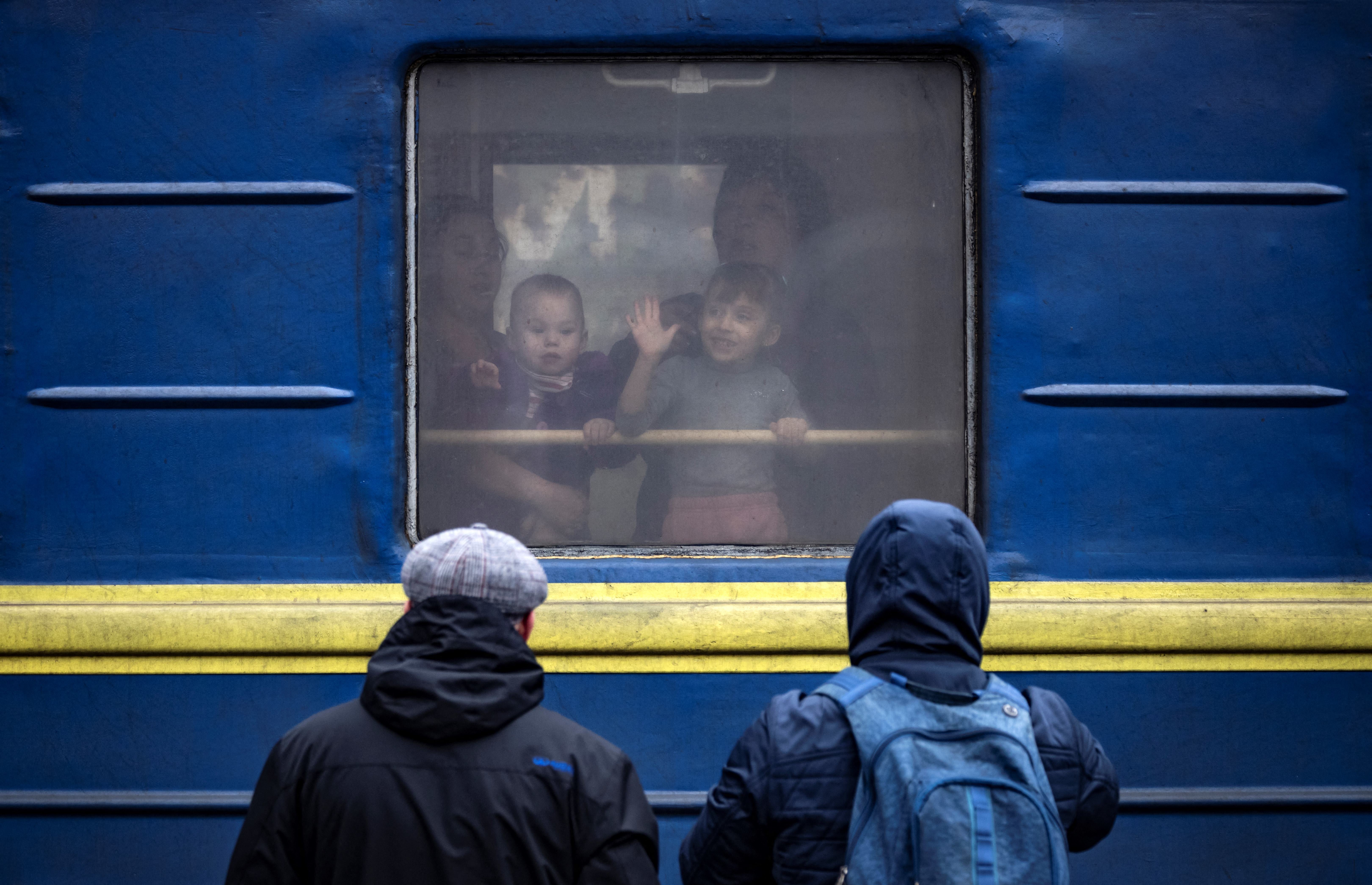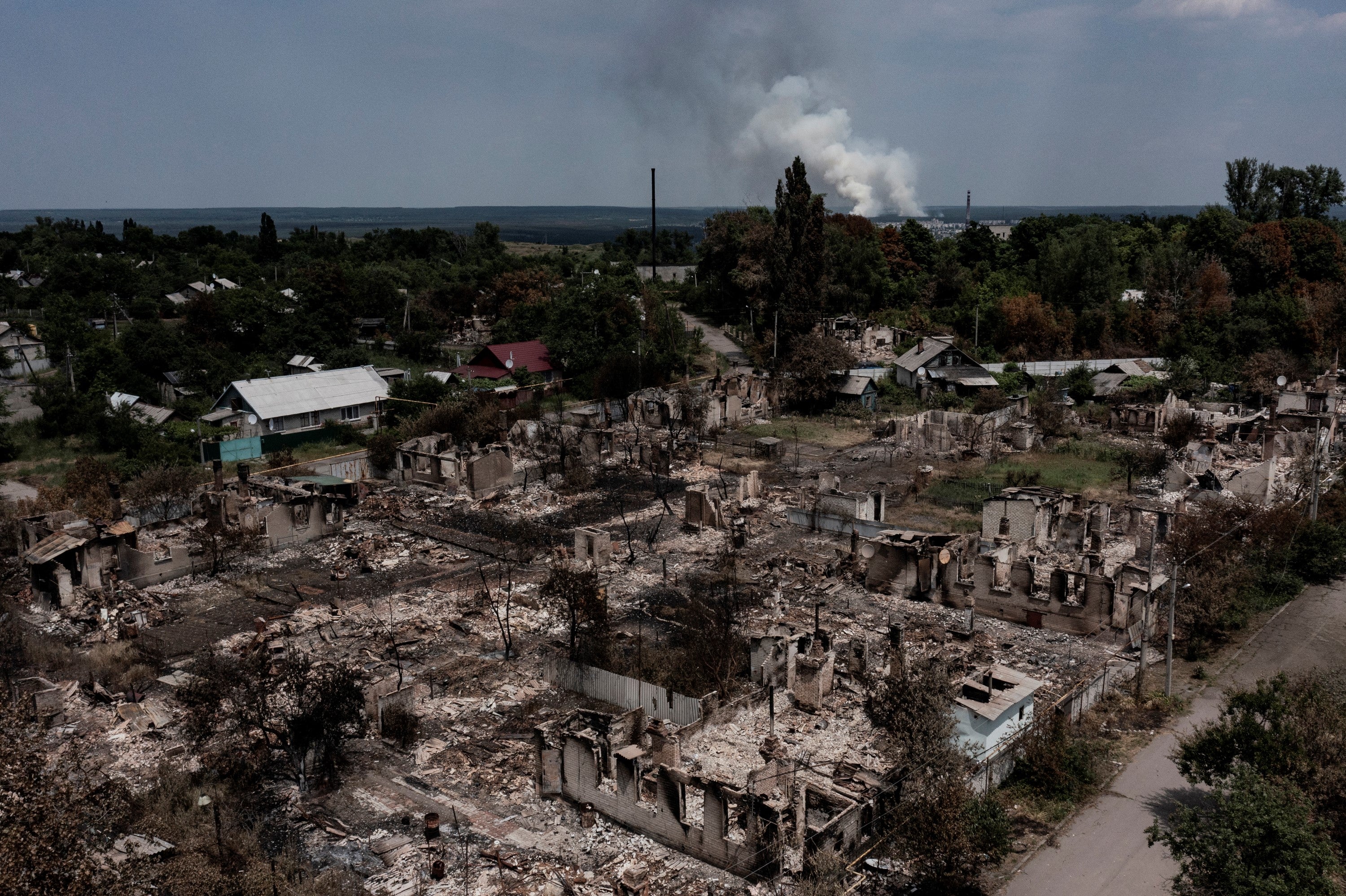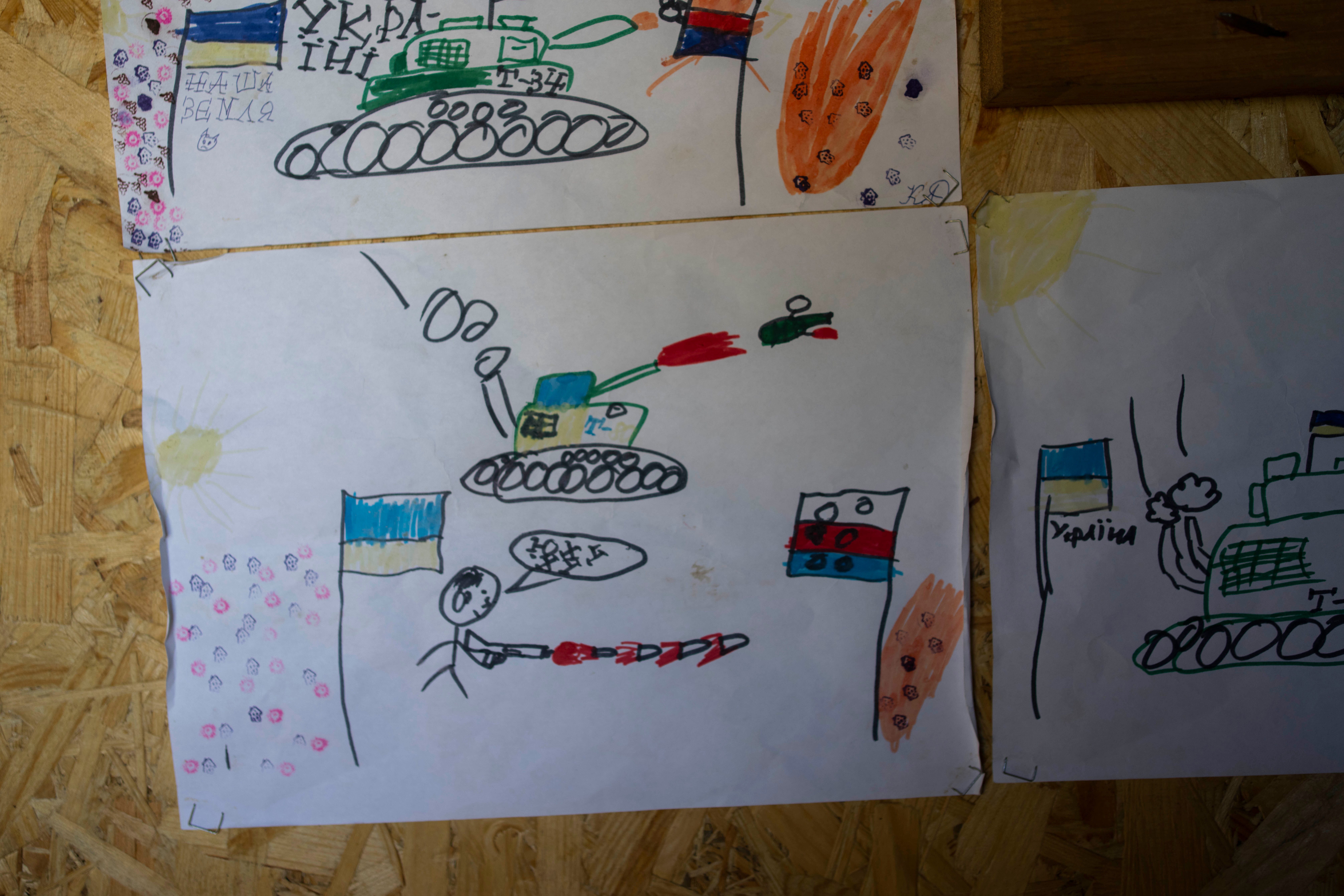Hundreds of Ukrainian children fleeing war made homeless in UK due to ‘broken’ refugee schemes
New figures show 660 households from Ukraine forced to register as homeless after being granted protection in UK, which critics say is ‘entirely avoidable’

Your support helps us to tell the story
From reproductive rights to climate change to Big Tech, The Independent is on the ground when the story is developing. Whether it's investigating the financials of Elon Musk's pro-Trump PAC or producing our latest documentary, 'The A Word', which shines a light on the American women fighting for reproductive rights, we know how important it is to parse out the facts from the messaging.
At such a critical moment in US history, we need reporters on the ground. Your donation allows us to keep sending journalists to speak to both sides of the story.
The Independent is trusted by Americans across the entire political spectrum. And unlike many other quality news outlets, we choose not to lock Americans out of our reporting and analysis with paywalls. We believe quality journalism should be available to everyone, paid for by those who can afford it.
Your support makes all the difference.Hundreds of Ukrainian children and their families have been made homeless after being granted sanctuary in the UK, new figures reveal.
Ministers have been accused of presiding over “broken” refugee schemes for Ukrainian nationals after it emerged that 660 households who have come to Britain via these routes have been forced to register as homeless.
The data, published by the Department for Levelling up, Communities and Housing on Thursday, reveals that of the homeless households, 480 were families with at least one child, while 180 were single households.
In total, 51,800 people so far have arrived under the Homes for Ukraine scheme, which enables refugees to “match” with people offering rooms, while 25,400 have come under the family scheme, which allows refugees to join relatives in the UK.
The figures show that seven in 10 households (480) that have been made homeless arrived under the family scheme, of which 62 per cent became homeless because the housing was “not available or suitable on arrival”, while the remaining 175 left their housing because the arrangement “broke down”.
Of the 145 households who registered as homeless after arriving under the Homes for Ukraine scheme, 55 left because the accommodation was not available or suitable, while 90 left because the arrangement broke down.
Only 140 households who have registered as homeless – one in five – have so far been provided with alternative housing, according to the data.
It comes after The Independent revealed that thousands of Ukrainians seeking refuge in the UK had been forced to live in overcrowded accommodation, with whole families sharing single rooms.
In other cases, refugees coming under the Homes for Ukraine scheme have been placed with unvetted hosts and in unsuitable homes because the government has yet to give councils any funding for vital safety checks.

Clive Betts, Labour MP and chair of the levelling up committee said the fact that Ukrainian families were falling homeless was “entirely avoidable” and demanded that ministers allow people who become homeless on the family scheme to rematch under the Homes for Ukraine scheme.
Currently, if a placement under the family scheme breaks down, the household is not permitted to move over to the Homes for Ukraine scheme – despite many individuals offering to host still not having been matched with refugees.
“There are still many who really want to offer a home to refugees and the government seems to have an absolute obsession that if you come on one [sceme], you can’t switch to the other,” Mr Betts said.
“We’re bringing people thousands of miles to this country and then put them in unsuitable B&Bs. The government should allow people to switch. It should allow local authorities to look at lists of people who want to offer a home and put people in touch with each other.
“It would save money and human cost. It would save trauma to refugees. The schemes are broken. The government’s approach is wrong and blinkered.”

Enver Solomon, chief executive of the Refugee Council, said: “It is worrying to hear that desperate Ukrainian families who have fled war, endured trauma and heartbreak, arriving here, entrusting their safety in our hands, have been left to fall into homelessness.”
He said the government should provide the same level of funding to local councils for the family scheme as for the Homes for Ukraine scheme.
“We welcomed the thousands of British people that came forward to open their homes, however these hosting relationships were always going to come with risks, and responsibilities,” he added.
“That is why it is vital the government ensures that hosts and refugees are provided with the right training and specialist support – including help to find alternative accommodation when necessary to avoid the risk of homelessness.”
The Independent revealed last month that Ukrainian refugees in the UK who become homeless could be housed in B&Bs indefinitely under new laws quietly pushed through by the government.
The changes also set out that councils can place these groups out of area – potentially hundreds of miles away – without taking into account factors such as the disruption to employment and education and access to medical facilities or other support.

David Renard, housing spokesperson for the Local Government Association, echoed Mr Betts’ calls to enable people on the family scheme who present as homeless to be re-matched with a sponsor under the Homes for Ukraine scheme.
He added: “Urgent work is needed on how councils can work with government and the community, faith and voluntary sector so those offering their homes can be quickly matched with a family in need.”
Mr Renard also called for better data-sharing with local councils, saying: “Currently councils receive no data on, or funding for, people who are coming under the family visa scheme.
“Councils also need information on arrivals through Homes for Ukraine and those supporting them as quickly as possible so they can ensure sponsor accommodation is suitable and safe before they arrive.
“Data does not always arrive in time to enable this and many councils are still reporting significant issues with this data.”
A government spokesperson said all of those arriving in the UK under the two schemes had access to benefits and public services, as well as the right to work or study, from the day they arrive.
They added: “The overwhelming majority of people are settling in well but in the minority of cases, where family or sponsor relationships break down, councils have a duty to ensure families are not left without a roof over their head. Councils also have access to a rematching service to find a new sponsor in cases under the Homes for Ukraine scheme.”


Join our commenting forum
Join thought-provoking conversations, follow other Independent readers and see their replies
Comments